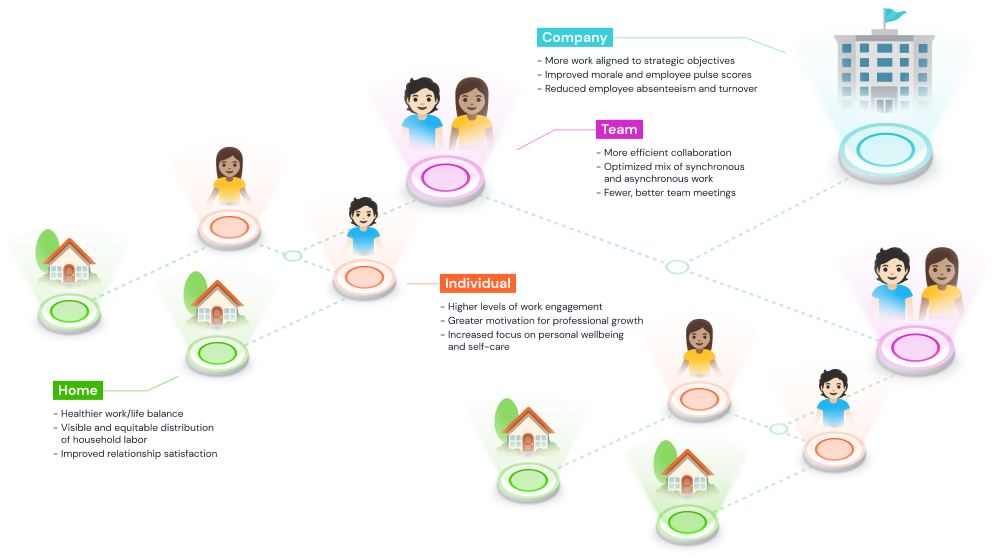
The Butterfly Effect 🦋of Adaptability & Resilience Skills
10 min
December 26, 2022 · 6 min

Remote work job openings are down, so is this the beginning of the end of a failed remote work experiment? Some high-profile CEOs think so, but in this case, it’s very likely that they are betting on the wrong horse.
Why? Well, simply put – betting against remote and hybrid is betting against human nature, and in the medium term, few of us get rich doing that. The data on the subject is pretty clear at this point. According to a study by McKinsey & Company, given the opportunity, 87% of us have chosen to do so.
It’s not surprising that remote is popular among employees. Most remote workers believe that they are more productive outside the office (there is some debate about whether this is true, but it is still a belief). Most of us are happy to give up hours each day spent in traffic, and a lot of us have used the opportunity to reverse years of sleep deprivation. In fact, research conducted by the Federal Reserve Bank of New York, concluded that one of the primary ways remote workers are using their extra time is getting more sleep.
So, if you are staying resolutely in-office, what will it likely mean for your business going forward? Well, first, expect to find it much harder to get top talent. The same report (from LinkedIn) which showed remote job openings down, also showed a startling increase in people applying for those remote jobs. Not only that but our research at BillionMinds indicates that some of the most talented employees are increasingly ONLY looking at remote jobs.
Also, expect to find it harder to KEEP your existing talent. While you may believe in-office is best for your business – a lot of your employees will disagree. Many of them will now have job opportunities all over the world and they won’t have to move to take many of them. That will only increase over time.
You will probably also need to invest more in your in-office amenities and experience. If people are going to put up with a commute, you are going to need to give them something worth experiencing when they get there.
If all that sounds like a lot of work, you are right. That’s why some CEOs and HR leaders are not even thinking about returning to the office, but instead are focusing their energies on how to build the best remote work environment. One of them is Phil Libin – the CEO of mmhmm and former CEO of Evernote, who spoke to us about the topic in a recent episode of our Way Too Busy podcast. mmhmm has no in-office requirements at all. Phil told us “My top of the funnel for talent is just 10,000 times bigger than was before. I can hire the very best people anywhere in the world. And I’m gonna give that up? No, you’re going to have to pry that out of my cold dead hands.”
Of course, none of this means that a great productive remote-first environment is easy, just that returning to a previous in-office era is not easy either, and for most organizations, it makes more business sense to focus energies on creating the best remote or hybrid environment they can.
If you want to build a great remote or hybrid environment for your business – we are here to help. You download our ebook “How to make remote work work”, or contact us today to discuss what steps you need to take to create a thriving remote workforce.